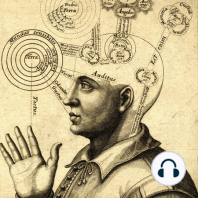72 min listen

At Year's End with the Angel of History: 2019 in Review
At Year's End with the Angel of History: 2019 in Review
ratings:
Length:
124 minutes
Released:
Dec 21, 2019
Format:
Podcast episode
Description
In this episode of the Podcast for Social Research, the last of the year, Raphaële Chappe, Ajay Singh Chaudhary, Mark DeLucas, Rebecca Ariel Porte, Michael Stevenson, and Cora Walters contemplate their most intriguing cultural experiences from 2019: art objects and films, music, dance, games, gardens, literature, television and national forests, the high-brow, the low-brow, and the middle-. Common threads include the rediscovery of older forms and genres, problems of nostalgia and novelty, time and scale, exhaustion and renovation, and what it means to stumble into an artwork and find familiar places, people, and things suddenly made strange. You can download here by right-clicking here and “save as,” or look us up on iTunes. This episode of the Podcast for Social Research was edited by Nechama Winston. If you enjoyed the podcast, please consider supporting our Patreon page.
Released:
Dec 21, 2019
Format:
Podcast episode
Titles in the series (99)
Podcast for Social Research, Episode 33: Ecology, Community, Prosperity: a Conversation with Eliza Griswold: What is the price of fracking? In the 33rd episode of the Podcast for Social Research, Eliza Griswold, author of the Pulitzer Prize-winning Amity and Prosperity: One Family and the Fracturing of America, joins BISR's Ajay Singh Chaudhary for a... by The Podcast for Social Research